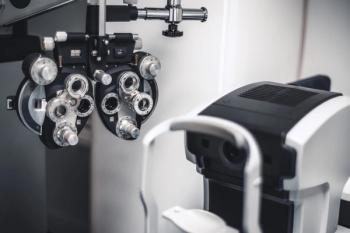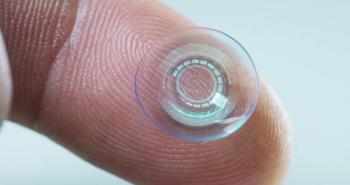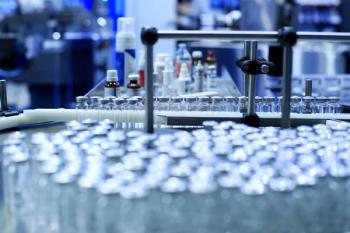
Healing damaged collagen in the eye with topical polypeptides in patients with myopia
New research reveals collagen mimetic peptides may effectively restore ocular tissue stiffness, offering hope for myopia and other eye diseases.
The results of a new study1 in the journal Pharmaceuticals indicate that collagen mimetic peptides (CMPs) applied topically to the ocular surface have therapeutic potential for treating ophthalmic diseases by reducing tissue stiffness and integrity caused by ocular stress such as that occurring in myopia. The CMPs bind to and repair disease- and trauma-damaged collagen, according to a press release issued by Stuart Therapeutics Inc.
The company’s PolyCol platform of CMPs is described as synthesized therapeutic polypeptides that target and heal specific areas of collagen damage that are implicated in chronic diseases of the eye. In addition to myopia, the platform also may address dry eye disease, glaucoma, diabetic retinopathy, and recurrent corneal erosion.
The study investigators, led by first author Lauren Wareham, PhD, a research assistant professor at Vanderbilt Eye Institute, Department of Ophthalmology and Visual Sciences, Vanderbilt University Medical Center, Nashville, Tennessee, explained that several chronic ophthalmic diseases cause the cellular release of matrix metalloproteinases (MMPs), enzymes that degrade and remodel collagen proteins.
The effect of MMPs on helical structures decreases their activity as signaling proteins, leading to a cycle of inflammation and further damage. Healthy collagen structures are required for full and healthy recovery of the affected tissues, they explained.
In this study, the researchers measured how stress induced by elevations in intraocular pressure impacts stiffness of the peripapillary sclera and glial lamina in the rat eye and how this was counteracted by topical treatment of a reparative mimetic of type I collagen.
The results showed that with 4 weeks of elevated intraocular pressure, there was a decrease in scleral stiffness that corresponded to an increase in fragmented, or damaged, collagen. During the same period, the application of CMPs to the ocular surface had a concurrently restorative effect on both scleral stiffness and collagen structure.
David Calkins, PhD, vice president for research at Vanderbilt University Medical Center and lead investigator of the study, commented, “Stress-induced reduction in tissue stiffness and collagen damage occur and facilitate disease progression in many conditions that involve the peripapillary sclera, including myopia. While more research is needed, our results suggest that CMPs, when applied to the ocular surface, could promote the restoration of tissue stiffness and integrity challenged by degraded or remodeled collagen, thus helping the eye maintain its ability to respond to disease-related ocular stress.”
The researchers concluded, “We have demonstrated the potential of CMPs to repair intraocular pressure-induced decreases in tissue stiffness, presumably due to fragmented collagen. Since collagen damage in the eye may be evident early in conditions such as myopia and glaucoma, the use of CMPs to repair collagen damaged by tissue strain or stress may be an effective preventive or restorative intervention.”
They believe that the implications of treatment with CMPs to restore scleral stiffness are significant, considering the high percentages of individuals worldwide who are myopic. (Patients with high myopia, defined as -6.0 diopters and higher, are more likely to have retinal detachments, macular degeneration, glaucoma, and other ocular health problems. “A well-tolerated and effective therapeutic for myopia would provide welcome relief to a very large population,” they said.
Reference
Wareham LK, Ghanem GOB, Clark KL, Schlumpf E, Del Buono BJ, Calkins DJ. Topical application of a collagen mimetic peptide restores peripapillary scleral stiffness reduced by ocular stress. Pharmaceuticals. 2025;18:875.
Newsletter
Want more insights like this? Subscribe to Optometry Times and get clinical pearls and practice tips delivered straight to your inbox.















































